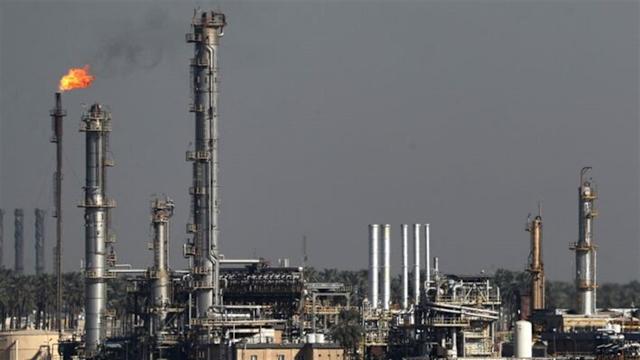
(Bloomberg) -- The latest oil supply shockwave unleashed by OPEC+ is set to swell a surplus later this year, pressuring prices for producers the world over while answering US President Donald Trump’s calls for lower fuel costs.
Most Read from Bloomberg
-
Trump’s Gilded Design Style May Be Gaudy. But Don’t Call it ‘Rococo.’
-
Foreign Buyers Swoop on Cape Town Homes, Pricing Out Locals
-
Massachusetts to Follow NYC in Making Landlords Pay Broker Fees
-
NYC Commutes Resume After Midtown Bus Terminal Crash Chaos
-
In California, Pro-Housing ‘Abundance’ Fans Rewrite an Environmental Landmark
OPEC and its allies have reason to believe the surge will find buyers, at least in the short-term, and price hikes by group leader Saudi Arabia following the decision symbolize that confidence. But even before Saturday’s surprise move — taken after just 10 minutes on a video conference call — global oil markets already seemed to be on borrowed time before the arrival of a winter glut.
“For now, the oil market remains tight, suggesting it can absorb additional barrels,” said Giovanni Staunovo, an analyst at UBS AG in Zurich. “But there are rising risks like ongoing trade tensions, implying that the market could look less tight over the coming 6-12 months, which would pose downside risks to prices.”
On Saturday, the Organization of the Petroleum Exporting Countries and its partners blindsided energy traders by announcing that they would further speed up a revival in collective oil production next month. The move offers cheer for consumers and a win for Trump, who campaigned on a pledge to cut fuel costs. It also threatens pain for producers, from America’s shale heartlands to OPEC’s own members.
Still, Riyadh seems undaunted. On Sunday, state-run Saudi Aramco hiked the premiums it charges for its flagship crude to customers in its key Asian market by more than traders had anticipated. Those don’t look like the actions of a producer that’s anxious about demand.
OPEC+ officials said that summer demand was one reason for their optimism. US crude inventories are sliding in the key storage hub of Cushing, oil-pricing spreads don’t suggest a surplus now, and America’s stockpile of diesel has collapsed.
Supply Trajectory
Fuel demand also peaks in the northern hemisphere summer, giving the group a window to speed up its broader strategy of reclaiming the market share relinquished in recent years to rivals like US shale drillers.
Saturday’s decision nevertheless shifts the trajectory of global supply. While OPEC projects the extra barrels are needed to meet demand even through December, other forecasters are skeptical. Even before the additions were announced, the International Energy Agency, a Paris-based adviser to major economies, was predicting a surplus equal to about 1.5% of global consumption in the fourth quarter.
Story ContinuesOil futures slumped 11% over the past two weeks in London, quickly shrugging off the Israel-Iran conflict and suggesting traders are not convinced extra barrels are vital. Goldman Sachs Group Inc. and JPMorgan Chase & Co. have been predicting a further slide towards $60 this year as Chinese consumption falters and Trump’s trade tariffs cast a shadow across the global economy.
Broad Support
Eight of the alliance’s key members decided during Saturday’s video-conference to restore 548,000 barrels a day of halted output in August. It’s a marked step-up from the 411,000-barrel hikes set for May, June and July, which were already triple the volume initially scheduled for those months.
OPEC+ will consider another 548,000-barrel tranche for September at a meeting on Aug. 3, a step that would complete the reversal of a 2.2 million-barrel cutback — made back in 2023 — a year earlier than previously envisioned.
The actual supply impact on oil markets will likely be smaller than advertised, as Saudi Energy Minister Prince Abdulaziz bin Salman pressures countries that previously exceeded their production quotas to forego their share of the hikes. Russia and Iraq are showing some signs of compensation, though Kazakhstan continues to cheat.
“The official return of barrels is one thing, but actual new supply versus the headline numbers is another,” said Doug King, chief executive officer of RCMA Capital LLP. “Diesel premiums are showing the market undersupply. So unless we see physical weakness via visible inventory increases, I don’t see a path lower for crude prices.”
Officials also stress that the supply additions can be “paused or reversed subject to evolving market conditions.” But unless they exercise that option, the extra barrels already rubber-stamped will almost inevitably deepen a slide in prices.
That would likely mollify President Trump’s repeated calls for cheaper fuel costs to staunch the cost-of-living crisis that hurt his predecessor. Trump also has to fend off inflation while lining up a raft of tariffs, and agitating the Federal Reserve to lower interest rates.
Yet the rout will take a toll on America’s oil industry, from corporate giants like Exxon Mobil Corp., to the shale explorers who widely backed Trump’s bid to reclaim the White House. Shale executives said in a recent survey they expect to drill significantly fewer wells this year than planned at the start of 2025 as prices falter.
And the pain may well ripple through OPEC+ itself.
Saudi Arabia needs more than $90 a barrel to cover government spending, as Crown Prince Mohammed bin Salman embarks on a radical plan to transform the desert kingdom’s economy, according to the International Monetary Fund. Riyadh is grappling with a soaring budget deficit, and has been forced to slash spending on some of the prince’s flagship projects.
If Riyadh tires of the financial strain, it could opt to pull supplies back off the market again.
“They do have the option of a volte-face,” said Neil Atkinson, an independent analyst and former head of the IEA’s oil markets and industry division. But in the meantime, “there’s no alternative but to ensure market share and accept lower prices. You might as well accept the world for what it is, which is what they’re doing.”
--With assistance from Salma El Wardany, Fiona MacDonald and Nayla Razzouk.
Most Read from Bloomberg Businessweek
-
For Brazil’s Criminals, Coffee Beans Are the Target
-
Sperm Freezing Is a New Hot Market for Startups
-
SNAP Cuts in Big Tax Bill Will Hit a Lot of Trump Voters Too
-
Pistachios Are Everywhere Right Now, Not Just in Dubai Chocolate
-
China’s Homegrown Jewelry Superstar
©2025 Bloomberg L.P.













